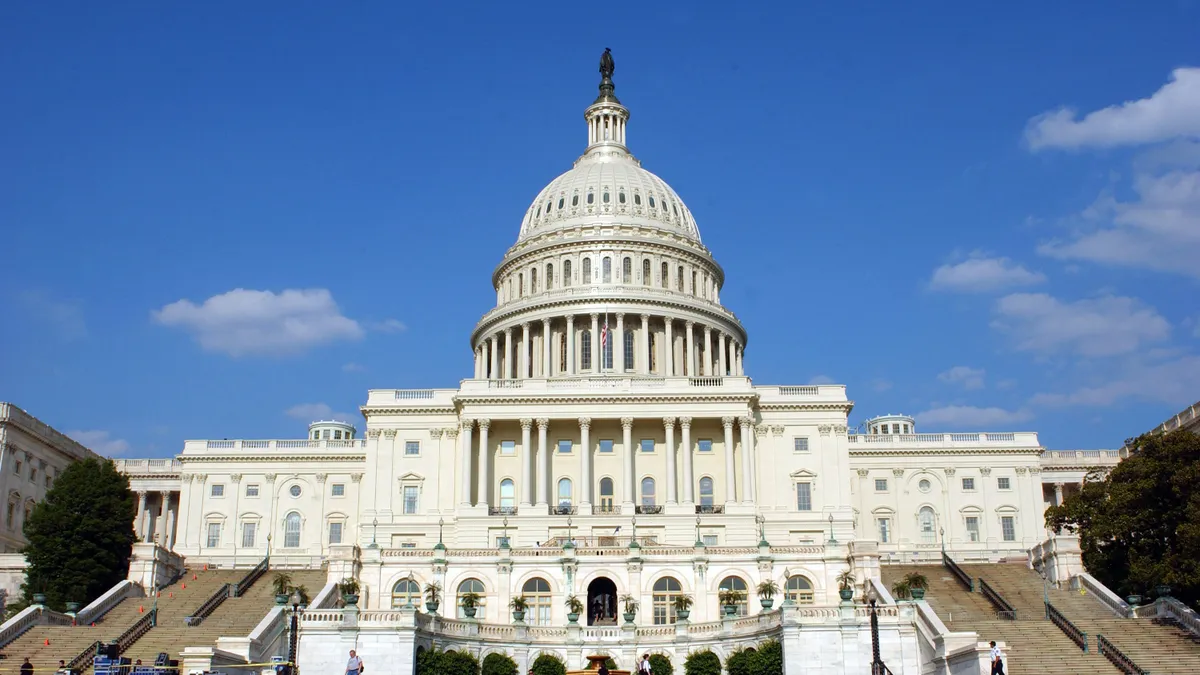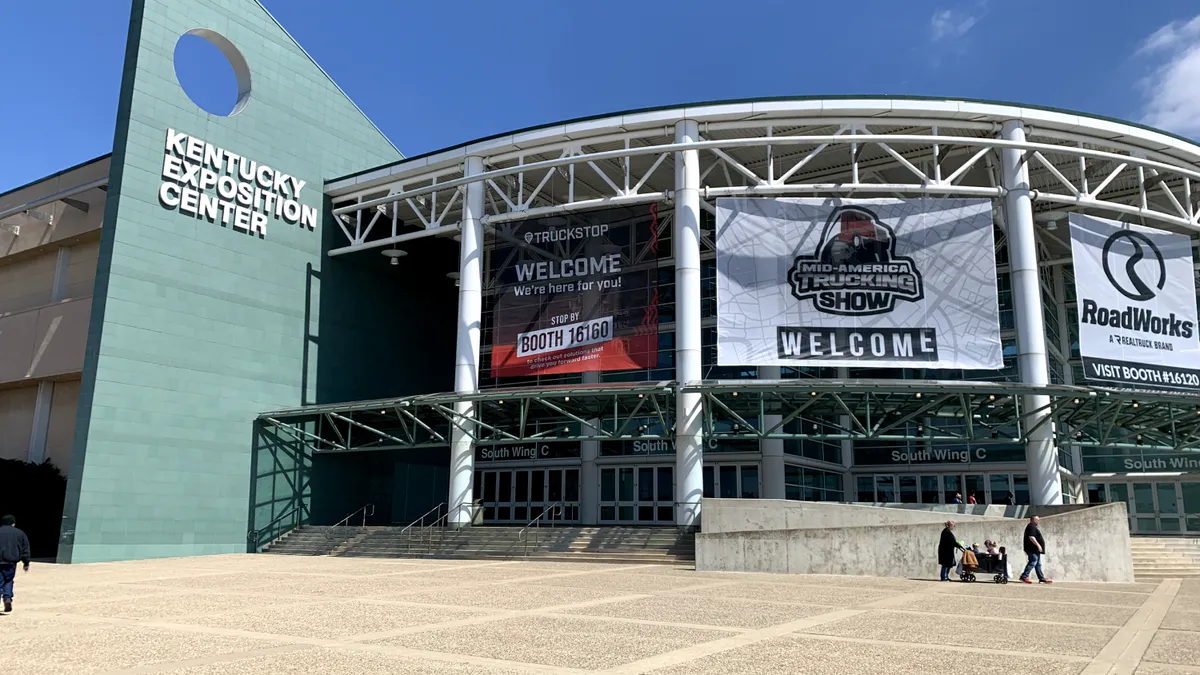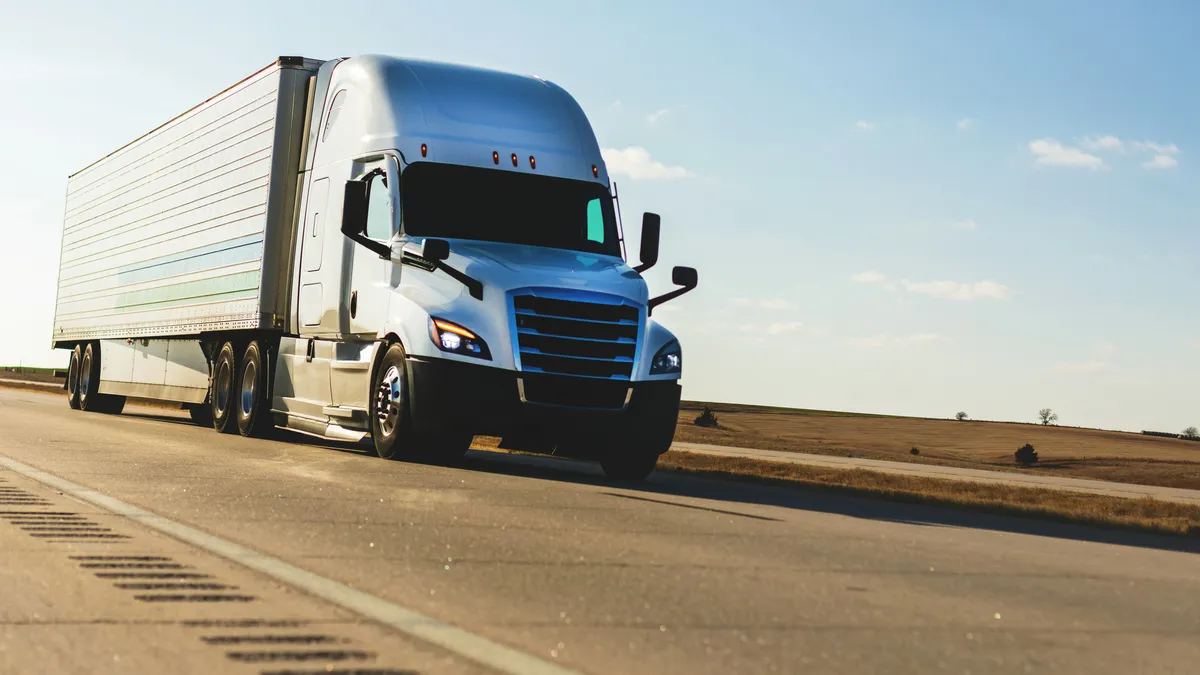Dive Brief:
- After weeks of negotiations, the Senate passed the $1.2 trillion Infrastructure Investment and Jobs Act Tuesday by a 69-30 margin, with 19 Republicans joining Democrats in favor of the legislation. Mike Rounds, a South Dakota Republican whose wife is undergoing cancer treatments, did not vote.
- The bill, which includes $550 billion in new infrastructure spending over the next five years, represents the largest new federal investment in the country's roads, bridges and highways in decades.
- The bill now awaits a vote from the House of Representatives, whose members do not return from recess until Sept. 20.
Dive Insight:
Measures in the legislation include $110 billion for improvements to roads and bridges, in addition to expanding electric vehicle capabilities across the country.
American Trucking Associations President and CEO Chris Spear lauded Congress for taking action.
"Passage of this bipartisan infrastructure bill is a groundbreaking step toward revitalizing America’s decaying roads and bridges, supporting our supply chain and economy with the foundation they need to grow, compete globally and lead the world. The bill also contains significant measures to grow and strengthen trucking’s essential workforce," he said in a statement.
NATSO, formerly known as National Association of Truck Stop Operators, said the bill lays the groundwork for the retail fuels industry to invest in EV charging and other emerging technologies. The group also noted it was pleased the Senate omitted measures that would toll interstate highways and commercialize rest areas.
"The policies established by the [Infrastructure Investment and Jobs Act], while not perfect, will ensure that our industry can compete on a level playing field and encourage private sector investments in alternative transportation energy," NATSO President and CEO Lisa Mullings said in a statement.
Earlier this year, Biden and congressional lawmakers had considered raising taxes to support new infrastructure funding and other programs, but the bill passed Tuesday will be paid for without raising the corporate tax rate.
Brian Turmail, vice president of public affairs and strategic initiatives for the Associated General Contractors of America, noted that the legislation will help generate jobs.
"The new infrastructure measure boosts federal investments in a wide range of infrastructure projects, which will help generate new demand for construction and create new, high-paying construction career opportunities," Turmail said in a statement shared with Construction Dive.
The push to hire for construction-related jobs will likely dip into the available labor pool for truck drivers. Such a challenge would compound the current driver shortage.
House Speaker Nancy Pelosi, a Democrat from California, has indicated the House will not take up the infrastructure bill until the Senate also presents its budget plan; it could take months to pass both. Turmail voiced concerns about tying these other measures to the infrastructure bill.
"Unfortunately, some members of the House want to delay action on the bipartisan measure until passing an unrelated, partisan spending bill. The last thing Washington should do is hold a much-needed, bipartisan infrastructure bill hostage to partisan politics," he said.













